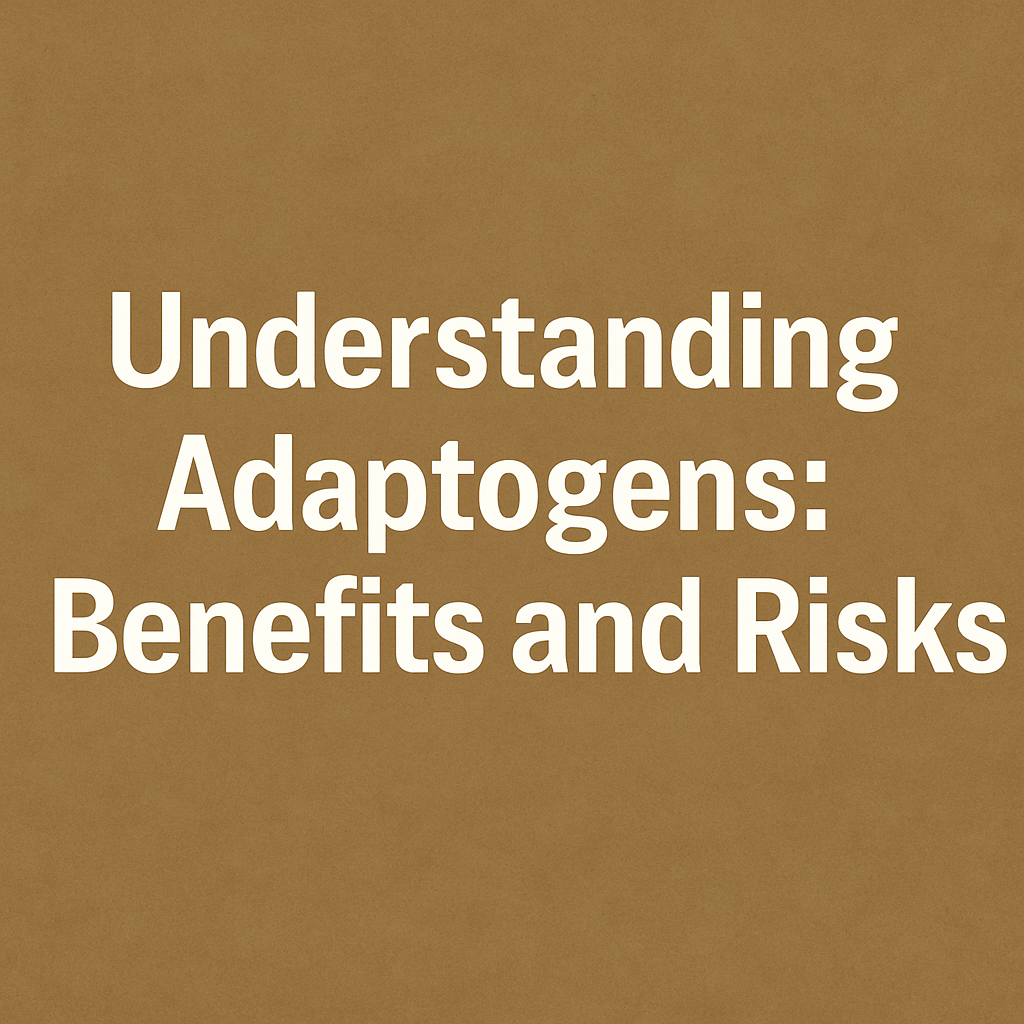Understanding Adaptogens: Benefits and Risks

What Are Adaptogens?
Adaptogens are a class of phytochemicals derived from herbs, roots, fungi and plants that are claimed to enhance the body’s ability to adapt to stress and restore homeostasis. Common examples include ashwagandha (Withania somnifera), rhodiola (Rhodiola rosea), Panax ginseng, and medicinal mushrooms such as reishi (Ganoderma lucidum). These ingredients are processed into dry extracts—often standardized via high-performance liquid chromatography (HPLC)—and consumed as capsules, teas, powders or functional beverages.
Mechanisms of Action
Laboratory studies suggest that adaptogens modulate the hypothalamic–pituitary–adrenal (HPA) axis and the sympathoadrenal system. Key proposed mechanisms include:
- Cortisol regulation: Certain withanolides in ashwagandha may inhibit enzymatic pathways that drive cortisol synthesis, lowering peak levels post-stress.
- Neurotransmitter balance: Compounds like rosavins and salidroside in rhodiola may enhance serotonergic and dopaminergic signaling, potentially improving mood and cognitive resilience.
- Antioxidant effects: Triterpenoids in reishi exhibit free-radical scavenging activity, which may protect neurons under oxidative stress.
Efficacy and Clinical Evidence
While dozens of small randomized trials have evaluated adaptogens, results remain heterogeneous due to variable extract concentrations and study designs. A 2024 meta-analysis in Phytomedicine reviewed 12 trials of ashwagandha (300–600 mg/day standardized to 1.5–2.5% withanolides) and found a mean reduction in perceived stress scores of 25% versus placebo. However, the authors noted high inter-study variance and potential publication bias.
“Despite promising pilot data, large-scale, double-blind trials with standardized extracts are needed to confirm efficacy,” write researchers at the European Food Safety Authority (EFSA) in a recent white paper.
Regulatory Landscape and Quality Control
Dietary supplements are regulated as foods rather than pharmaceuticals in the US and EU, which means adaptogens are not subject to pre-market approval. Key issues include:
- Standardization: Active constituents such as withanolides or rosavins may range from 0.1% to 5% depending on supplier—far below medicinal doses shown in trials.
- Contamination risks: Independent testing by consumer labs has detected heavy metals (lead, arsenic) and pesticide residues in up to 30% of samples.
- Label accuracy: A 2023 US FDA survey found that 20% of adaptogen products contained less than 50% of advertised actives.
Safety Profile and Potential Interactions
While adaptogens are generally well tolerated, experts caution on possible adverse effects:
- Ashwagandha: Rare cases of acute liver injury and gastrointestinal upset; contraindicated in pregnancy due to emmenagogue properties.
- Reishi mushroom: Reports of nausea, insomnia and hepatotoxicity at high dosages (>3 g/day of extract).
- Drug interactions: Reishi may potentiate anticoagulants like warfarin, increasing bleeding risk; rhodiola has been linked to restlessness when combined with SSRIs.
“Herbal does not mean harmless,” says Dr. Dana Hunnes, senior dietitian supervisor at UCLA Medical Center. “We need better pharmacovigilance and patient education.”
Recommendations for Clinical Use and Future Directions
Given current evidence gaps, many clinicians suggest non-pharmacological approaches as first-line stress management:
- Mind–body practices: mindfulness meditation, progressive muscle relaxation.
- Behavioral interventions: cognitive-behavioral therapy, guided biofeedback.
- Lifestyle optimizations: sleep hygiene, balanced nutrition, graded exercise.
For those who still opt for adaptogens, experts recommend:
- Choosing products with third-party certification (e.g., USP, NSF).
- Checking extract standardization (e.g., % withanolides, rosavins).
- Consulting healthcare providers to avoid drug interactions.
Emerging Research Trends
Ongoing studies are exploring:
- Genomic profiling: How individual genetic variants in CYP450 enzymes affect adaptogen metabolism and efficacy.
- Synergistic blends: Multi-herb formulations combining adaptogens with nootropics like bacopa.
- Microbiome interactions: The role of gut bacteria in transforming glycosides from herbal extracts into bioactive metabolites.
As the market—valued at over $10 billion in 2023—continues to expand, rigorous research and quality controls will be essential to separate hype from hope.